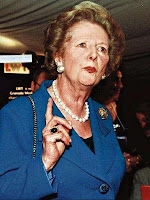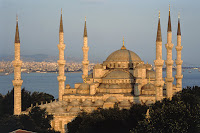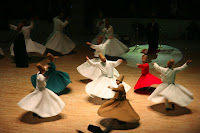 Batista in 1959
Batista in 1959In 1959, Fulgencio Batista, the dictator of Cuba made a prediction: "I will give Castro a year." He was saying that after a year the guerilla insurgency under Fidel Castro would be crushed completely and the revolutionary leader would be executed. Twice he had foiled Castro's rebellions and arrested him - in 1953 and 1956. Bastista, for whom politics was always a gamble, wanted to have an opponent against him. So he released Castro from prison. But the rebellion in 1956 was so strong and violent that Batista thought of executing the guerilla chief soon. After crushing the rebellion and releasing Castro, Batista arranged a party at Hotel Riviera which he built at the cost of $14 billion dollars. It was at this party that he predicted Castro's death. Unpredictability, which is the nature of all major political events in the world, befell Cuba after a few months. The third major coup led by Castro shook Batista's citadel with violence. His prediction did not have even as much longevity as he expected Castro to have. Castro ruled Cuba for 47 years before he handed over power to his brother Raul in 2007.
Thatcher in 1974

In 1974, Margaret Thatcher was the Cabinet Secretary for Education in Britain. At that time there were remarks in the media that if a woman had to become the prime minister of the country, Britain had to go back to monarchy. "Democracy is too immature to give woman the supreme power," said a famous columnist. Thatcher did not have objection to these comments. In a widely publicised speech, she made a prediction on the much-discussed issue. "It will be years before a woman either leads the Conservative party or becomes a prime minister. I won't see it happening in my lifetime," she said. The next year, British history witnessed a dramatic breakthrough. Thatcher was chosen to contest for the party leadership in 1975 and was selected for the post by a great majority. In 1979, Thatcher became the Prime Minister and led the country until 1990. Margaret Thatcher was the longest serving Prime Minister in more than 150 years and was the first woman ever to take the role.
John Paul in 1978
To be elected the
 Pope, one should have great catholic virtues, an infallible service record and, above all, a great amount of luck. Karol Wojtyla was sure of the first two qualities. Of luck, he was not much confident. So in 1978, after voting John Paul to the post, he said:" It's too early for Polish Pope". In October of that year, following the death of Pope John Paul I after 33 days, Karol became the 264th Pope, the youngest to hold the position since Pope Pius IX in 1846. He was known as Pope John Paul II and remained in the position until 2005. All of the major themes of John Paul II's papacy can be traced to the shaping events of his life--a life whose roots are sunk in Polish soil. His Christian vision, his vocation, his very emotions draw their depth and intensity from the country he left to become Holy Father of the Catholic Church in Rome. He revolutionised the office of the modern pope and took his mission out of the Vatican and around the globe, pushing back the boundaries of the old Christian Europe.
Pope, one should have great catholic virtues, an infallible service record and, above all, a great amount of luck. Karol Wojtyla was sure of the first two qualities. Of luck, he was not much confident. So in 1978, after voting John Paul to the post, he said:" It's too early for Polish Pope". In October of that year, following the death of Pope John Paul I after 33 days, Karol became the 264th Pope, the youngest to hold the position since Pope Pius IX in 1846. He was known as Pope John Paul II and remained in the position until 2005. All of the major themes of John Paul II's papacy can be traced to the shaping events of his life--a life whose roots are sunk in Polish soil. His Christian vision, his vocation, his very emotions draw their depth and intensity from the country he left to become Holy Father of the Catholic Church in Rome. He revolutionised the office of the modern pope and took his mission out of the Vatican and around the globe, pushing back the boundaries of the old Christian Europe.






